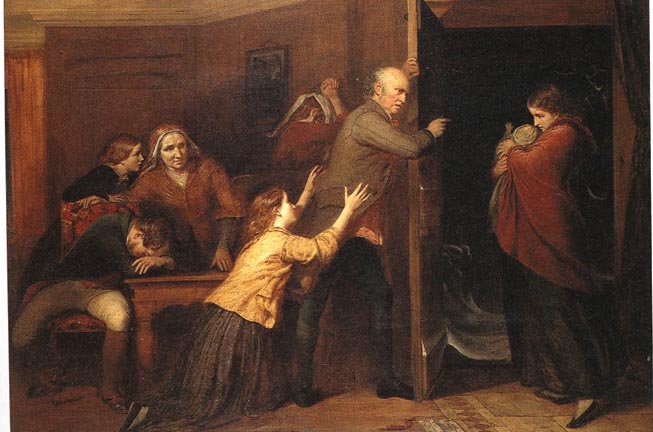| Muslims descend to Mecca for Eid al-Adha (Image: The Telegraph) |
I woke up yesterday morning disappointed in The Times newspaper. I don't often act this way towards a publication which I've proudly subscribed to for nearly five years. However, splashed on their Bank Holiday front cover read 'Christian child forced into Muslim foster care'. While any child forced into doing something they don't want is disturbing to say the least, I thought for them to explicitly include religion was a cheap shot.
The story itself was an investigative piece. It describes a five year old girl's six month foster journey, living with a family which their second language is English. The family happened to also follow the Islamic faith and obeyed the rules the religion apparently follows. The girl was reportedly banned from eating a bacon carbonara, had a cross necklace removed and was encouraged to learn Arabic. The local authority, in Tower Hamlets in east London, refused to comment on The Times' claims, but the paper had dedicated a lot of time and space to describe the so-called horror the little girl endured. Since then, the story has spread like wildfire. Of course, the Daily Mail later escalated it further with their own investigations about the same story.
Should these claims be true - that the girl was clearly distressed by her previous six months living in a home she felt uncomfortable in - then I appreciate the case being reported and taken seriously. As The Times rightly state, 51,800 children were in foster placements last year. Every case is different and should be approached sensitively too - for both the child and foster family. Administrative errors can take place too. As much as we'd like to think the foster system is perfect, just like the care system towards the elderly and A&E incidents, there will always be issues. Whether some of these are due to religious grounds, considering the current sensitivities surrounding faith, heightening this over other potential grounds, is a dangerous notion.
 |
| The Times on Monday 28th August 2017 |
Islam, as a religion, has had tough publicity to counter this century. Some argue it's been tough on them since just after the Second World War, but it has certainly escalated since 9/11 - which occurred nearly exactly sixteen years ago. The rise of use in digital and social media channels has heated the debate. Because of these, Islam has been targeted in terms of being blamed for mindless attacks across the world, in addition to the religion being the cause of every other crises the globe is facing today.
These crises taking place are heightened today like there's no tomorrow. It appears as if leaders of the Islamic faith spend more of their time promoting the good the religion than doing their day job. I'm certain the vast majority of Muslims would like to pray and hope for world peace without the thought of being vilified by those who fail to realise there is more than one side to a story.
My key message to those bewildered as to why the Islamic faith is facing constant widespread hate is to not sweat. This may be a bad time for the faith's public reputation. However, those who actively follow the faith aren't the only section of society that have been targeted in such a vicious way - whether from press or people who don't see eye-to-eye with how they see the world.
 |
| The Outcast (1851) shows how illegitimate children were treated |
With time, Islam can see it through the other side. It starts by not treating religion as if it's dirt. Islam, like Christianity, has been followed for centuries - occasionally without peace, of course. However, if it rocks that person's boat to follow what they believe in, who dares to stop them? I'm certainly not going to stop anyone from celebrating Eid al-Adha this Thursday and Friday (31st August and 1st September). As long as none of us are abusing our right by hurting others, we should do what we need to do. If that foster family reported in The Times don't eat bacon and wear specific garments, it really isn't a big deal. The girl, due to her young age, cannot defend claims about her unhappiness, so I felt therefore the entire case could have been dealt with privately and avoiding prejudice.
Without sounding like a broken record, if we do things without judgement, it would inspire the rest of the world to follow suit. Living a life without ignorance would lead to an easier life, wouldn't it?
Comments
Post a Comment